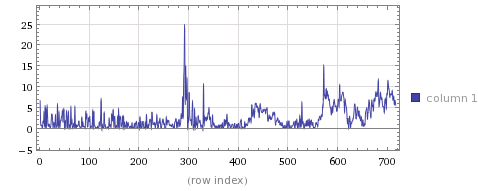Bitcoinity.org shows that for the past 30 days, bitstamp's price is high at 101.00, low at 77.00, and current price is 98.04. On contrast, mtgox's price for the past 30 days is high at 115.00, low at 86.20, and current price is 110.50.
In other words, someone or anyone can just buy from bitstamp and sell to mtgox to make profit.
What's stopping people from doing so? What's the catch?
It can't be that people aren't aware that they could do it right?

 (source:
(source: